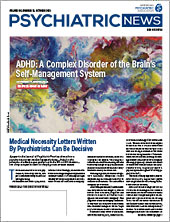Last month I wrote about the ethics of thruthfulness and honesty with patients and colleagues. I brought Aristotle into the discussion, but there are many other philosophical perspectives on this topic. In this column, I investigate contributions from Buddhist and Jewish traditions and suggest ways to incorporate this wisdom into our clinical and collegial interactions. Ironically, while writing this piece, I learned that I had unwittingly violated these concepts when discussing vaccination with colleagues.
Right Speech, Right Action, and Right Livelihood together comprise the three pathways to moral virtue taught by Buddha. Right Speech includes both abstaining from lying and being a reliable speaker of the truth. It also involves refraining from abusive or divisive speech, instead using polite speech to create harmony and affection. Finally, those who practice Right Speech avoid idle chatter and speak only that which is beneficial. With our patients, this means being honest about how we are formulating their condition and the treatment plan and being careful to not waste their time with small talk that is irrelevant to their treatment. With colleagues, it means having the courage to speak truthfully and constructively about workplace problems and to decline participation in gossip.
The philosophy of Right Speech is strikingly similar to the Jewish ethical concepts of l’shon hara and l’shon hatov. L’shon hara means “evil tongue” and includes derogatory speech that emotionally, financially, or socially harms a person. L’shon hara can include truthful speech as well as lies if the speech is intended as gossip or defamation rather than to correct a wrong. Although a simple way to avoid l’shon hara is silence, the 12th century scholar Maimonides encouraged the alternative of l’shon hatov, which means “good tongue” and entails speaking kindly through focused praise and speaking for the benefit of others through anecdotes that show others in a good light. Focused praise involves pointing out specific strengths rather than making sweeping generalizations. This has relevance to our patients, who may yearn for our feedback about what they are doing well and exactly how they might try things differently. Although they need to be able to tell us how they have been harmed by others, it isn’t especially helpful for us to speak harshly about the bad actors in their lives. Rather, they are helped by our empathic listening and our noting of the ways in which they have been resilient. With trainees, comments like “you’re a star” or “you’re brilliant” don’t offer growth-promoting feedback. Instead, pointing out specific strengths such as their attention to detail or patience during a challenging interaction will help shape them toward further mastery.
While Right Speech and l’shon hatov may seem obvious and easy, I recently received a lesson in the double-edged nature of honesty. A long-standing study group has been meeting virtually since March 2020, and several of us have been outspoken about our fear of contracting COVID-19 and our dismay at those who aren’t vaccinated. I assumed that everyone in this study group of highly educated professionals was eager to get jabbed. Only when we decided to hold a meeting in one of our backyards this past summer did one member of the group, I’ll call him Sam, reveal that he wasn’t vaccinated. He volunteered not to attend the garden meeting because he could tell from earlier conversations that his presence would make some of us uncomfortable. Although I don’t remember all my comments about the unvaccinated in recent months, I imagine Sam does. I am dismayed with myself for having spoken carelessly, possibly alienating a person I admire. At a time when I am paying more attention to potential bias and microaggressions, I was blind to how I was violating my own intention to be respectful and inclusive of people who are different from me because I incorrectly perceived Sam as being just like me. I did not refrain from divisive speech. My comments could have socially and emotionally harmed a colleague. I was truthful, relentlessly so, and this threatened the integrity of the study group. Fortunately, Sam and I have known each other a long time, and the deep well of our mutual respect allowed us to have a thoughtful, open conversation about the reasons he is not yet ready to get a COVID-19 vaccine.
Honesty is the best policy, but there’s an art to how we share it. We know that when meeting with patients, it is important to listen more than speak and to use our observing egos to monitor our impulses to blurt something out. When we do speak up with patients, hopefully we first reflect about the best words to use to motivate the patient toward self-improvement. Similarly, with students and supervisees, our praise or criticism will be most effective if both are specific, constructive, and respectful of the recipient’s capacity to take in the information. Finally, as I learned the hard way, even when talking with trusted peers, we must listen and reflect carefully before speaking lest we make harmful assumptions and damage relationships. ■

